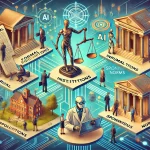
5 Must-Know Data Analytics Tools for Professionals
December 9, 2024As technology continues to revolutionize healthcare, data analytics and informatics are becoming indispensable for advancing medical care. Defined by the American Health Information Management Association (AHIMA) as “a science that defines how health information is technically captured, transmitted, and utilized,” health informatics bridges the gap between technology and patient care.
With data pouring in from electronic medical records (EMRs), wearable devices, diagnostic tools, and genomics, healthcare organizations face challenges in managing unstructured data. However, health informatics tools enable professionals to make data-driven decisions, improve resource management, and create personalized care plans.
Healthcare professionals must embrace these tools to stay ahead in the industry. Below are five essential data analytics and informatics tools every healthcare professional should know:
- Machine Learning (ML)
ML helps process large datasets for predictive analysis, identify patterns, and improve care pathways. It enhances diagnostics, aids in treatment planning, and supports emerging healthcare technologies. - Database Management
Effective database management integrates health data from multiple sources, enabling better insights. Tools like Application Programming Interfaces (APIs) and open-source platforms facilitate seamless data sharing across systems. - Cloud Computing
Cloud solutions provide cost-effective, scalable infrastructure for storing and processing healthcare data. They enable organizations to update systems efficiently and focus on advanced data analytics capabilities. - Predictive Analytics
Predictive tools extract data from EMRs, wearables, and medical devices to calculate risks and support clinical decision-making. These tools enhance outcomes and reduce costs by identifying trends and potential health risks early. - Data Visualization
Visualization tools transform raw data into intuitive infographics and dashboards, making complex data comprehensible. They support evidence-based decision-making and enhance communication across healthcare teams.
Driving Data-Informed Healthcare
By mastering these tools, healthcare professionals can harness the power of data analytics to improve patient outcomes, streamline operations, and meet the growing demand for health informatics experts. As the industry evolves, knowledge in this field will remain critical for driving meaningful advancements in care.
Now is the time to embrace these technologies and equip yourself with the skills to shape the future of healthcare.


















